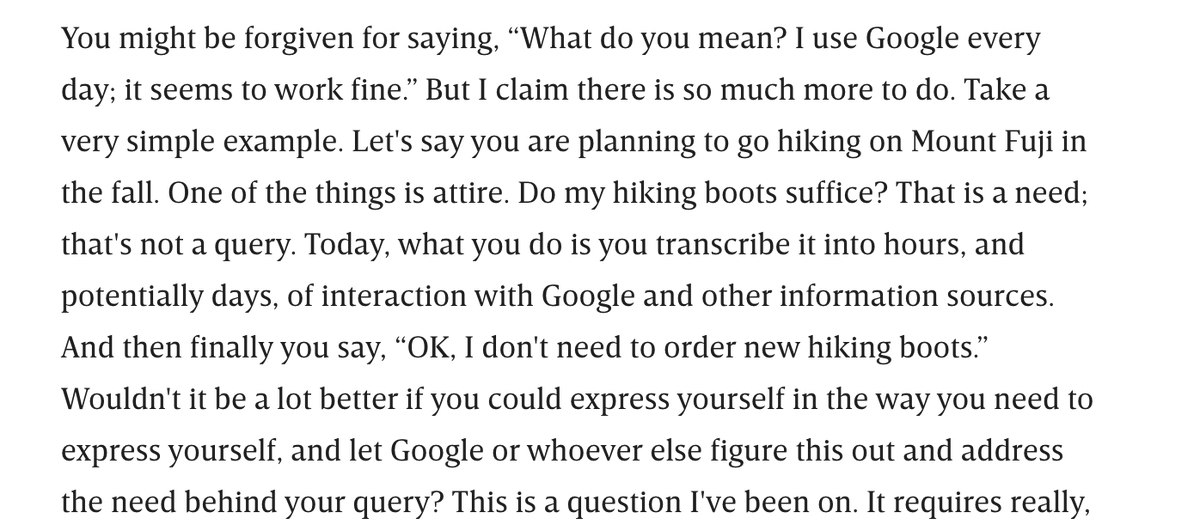
This whole interview is so incredibly cringe! On top of completely evading the issue as @timnitGebru points out, the views of both employees and users painted here are frankly awful. 1/n
https://twitter.com/timnitGebru/status/1397242146411974656
First, a "fun subject" -- really? Even if that was meant somewhat sarcastically, at *best* it belittles the real harm done to @timnitGebru , @mmitchell_ai (not to mention @RealAbril and other mistreated Google employees). 

But then check out Raghavan's reply. What does "famously open culture where people can be expressive" have to do with this story? What were they fired for, if not for being "expressive"?
3/n
3/n

"If that entails building more trust, yeah, we're committed to that." ... the question was "What are you trying to do to rebuild trust". This doesn't answer the question, not in the least.
4/n
4/n
Next Q&A: "We hire the best and brightest and unleash them." Unleash them?? Where is any attention to support, to creating workplace environments that are truly inclusive and empowering?
5/n
5/n

No, it's only about "unleashing" the "best and brightest" (= meritocracy code for people who have had their paths greased the whole way with privilege).
6/n
6/n
And then the interview features the "replace Google-search with Google-know-it-all" push that we keep hearing about since #GoogleIO2021 (and a bit before).
Context:
7/n
Context:
https://twitter.com/emilymbender/status/1394146591267643392
7/n
Back to the WIRED interview, where Raghavan is harping on again about that same boots for hiking Mt Fuji example. Why do we keep seeing just that example? It makes me really skeptical about what kinds of imagined users & use cases they are working from here.
9/n
9/n

But also, whose benefit is this really for? It sounds like they are only modeling people who have a lot of money (probably don't live in Japan, plan to fly there to hike Mt Fuji) and not much time. 10/n
But how would someone look to answer that question, without Google-know-it-all? By *talking to other people* and building relationships.
Elsewhere in the interview, Raghavan says: "Here, you have a responsibility to serve 3 billion people on the planet. Having an impact on the scale of billions, like Google, is such a rush, and with the brightest minds on the planet."
12/n
12/n
(Aside, what about the other ~4.7 billion? I guess they don't use Google? Don't count?)
13/n
13/n
So the goal is to do what, exactly, for 3B people? Web search is super useful, because it connects people to people. Information providers looking for an audience, information seekers looking for answers. Once connected, if both are amenable, they might even correspond.
14/n
14/n
But Google know-it-all interrupts that in so many ways. And rather than engage with the possible issues that might cause, here's what Raghavan has to say:
15/n
15/n

This is inexplicably right after Raghavan says "I honestly wake up every day thinking of the responsibility to people." Responsibility to people means serious investigation of how infrastructure-scale technology affects those people, not dazzling them with demos. 16/n
Serious investigation is what @timnitGebru and @mmitchell_ai (and their team) were doing. I know some of their team are still at Google and still doing good work, but I have no confidence that Google is prioritizing it in any way. Quite the opposite.
17/17
17/17
• • •
Missing some Tweet in this thread? You can try to
force a refresh



